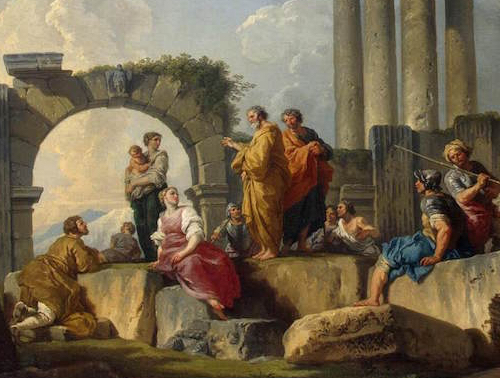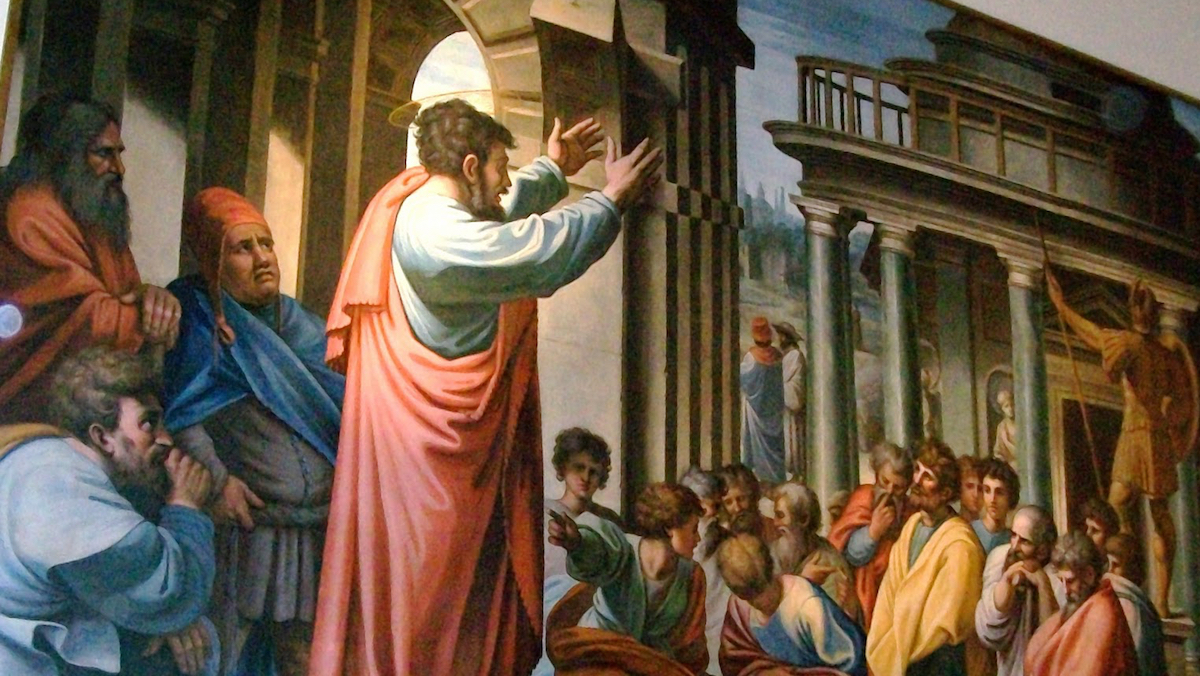In 1927 my grandfather, my father’s father died. My dad was just 10 years old. His older brother was 13. His four sisters were 11, 8, 5, and 2. My grandmother was in her mid 30’s. There was no welfare, no child support, no social security. Then the depression hit. My father and my uncle and aunts not only survived, but as individuals and as family, they prospered. How was this possible? It was possible because their neighbors felt a deep responsibility to help the widow, Minnie Pellegrino, and her children. When someone picked the string beans in their back yard, a portion would go to Minnie. When someone bought butter from the farmer, a portion was cut and sent to Minnie. If someone bought a piece of pork, the widow Pellegrino’s portion was cut first before the mother did the cooking. If you needed some sewing to be done, you let Minnie do it, so she could make a little money while she watched her little ones. There was no written law that detailed exactly what the neighbors had to do. It was the common sense realization that we can’t be the people God wants us to be unless we help those who hurt.
And a lawyer asked Jesus in an attempt to trip him up, “Teacher, which is the greatest of the laws,” and Jesus responded, “‘You shall love the Lord with your whole heart and whole soul and with all your mind.’ This is the greatest and the first commandment. The second is like it: ‘You shall love your neighbor as yourself.’ On these two commandments the whole law is based and the prophets as well.
There were 613 laws detailed in the Torah. All were seen as the direct revelation from God of what He wanted people to do. The Pharisees were determined that God’s will be followed. By the time of the Lord, many were mere legalists, concerned with the minimum of what was expected of them. But there were many others who were quite sincere. How can we serve God? “Of all the precepts of the Torah, which were the most important?,” the scholar of the law asked. Jesus’ answer was a combination of the great Shema Israel, Deuteronomy 6:5 “and you shall love the LORD your God with all your heart, and with all your soul, and with all your might” and Leviticus 19:18 “you shall love your neighbor as yourself.” He pointed out the two fundamental precepts from which common sense would dictate what God wants. There was nothing that said, “You should place God before your stuff. That was implied in the first precept of loving God with all our heart soul and might. There was nothing that said you must give a piece of meat to the widow, that was implied in “love your neighbor as yourself.”
Jesus says that all of scripture, Moses and the prophets, is based on these laws. Therefore, there are far more ways for a Christian to act than the 613 laws of the Torah, or the laws and moral precepts of the Catholic Church.
The trouble is that we are tempted to take a legalistic, and therefore minimal view of how we should serve God. With regard to worship we used to experience some people showing up for Mass at the Gospel and leaving at the Our Father because that was defined as what the minimal attendance at Mass was. Thank God those days are over and minimal attendance is no longer defined. You either go to Church to worship with the community or you don’t. We shouldn’t be so concerned with the minimum that we forget what is at the heart of the law.
The heart of the law regarding others is that we treat them with the respect and dignity that they deserve. All of us are people made in the image and likeness of God. There are no written laws defining how we are to treat people with dignity. There were no laws saying how much butter should go to the widow and her children. There are no specific laws saying that we have got to help the pregnant woman with no means of caring for the new life within her. We do this because we cannot claim to be loving God and neighbor if we do not help them.
A while back, I spent time with a family that had suffered a terrible tragedy that made the front pages of the paper. While we were praying together, the doorbell rang and people brought all sorts of sandwiches from the business where one of the members of the family worked. You have all done this or something like this. Now, there is no specific law saying you have to bring over some food to the grieving. But there is the heart of the law of Christianity that says you have to help those who are hurting.
Perhaps this is simple common sense. But it is common sense that flows from the deep seated need to allow the love of Christ within us to be expressed wherever possible. We don’t need specific laws to tell us how to act. In fact, if we refused to act unless there was a law telling us what to do and when to do it, then the law would hurt us rather than help us. We are to act out of love, not out of obligation. Church laws can give life or they can stifle life. If a law is seen from the minimal viewpoint, it stifles life. Jesus was not interested in this and often indicated his low opinion of people concerned with the minimum. But Church law can also give life. Church laws can point us in a direction where we can best serve God. We have an obligation to charity. That means we have to seek out those who need our help, and not be concerned with whether or not there is a specific law to do so.
Loving God and neighbor must be the fundamental precepts of our lives. Jesus says all of scripture flows from these laws. The Bible is the book of God’s love for his people. Every action of the Almighty, from our creation through our redemption as detailed in the Bible is an expression of the Infinite Love our God has for us. To really be a Godly people, we have to give life to the scripture by allowing the actions of our lives to resonate the voice of his love.
In the 31st chapter of the Book of Jeremiah, the prophet predicts what Jesus tells us is fundamental to His Way: This is the covenant which I will make with the house of Israel after those days, says the LORD: I will put my law within them, and I will write it upon their hearts; and I will be their God, and they shall be my people.








